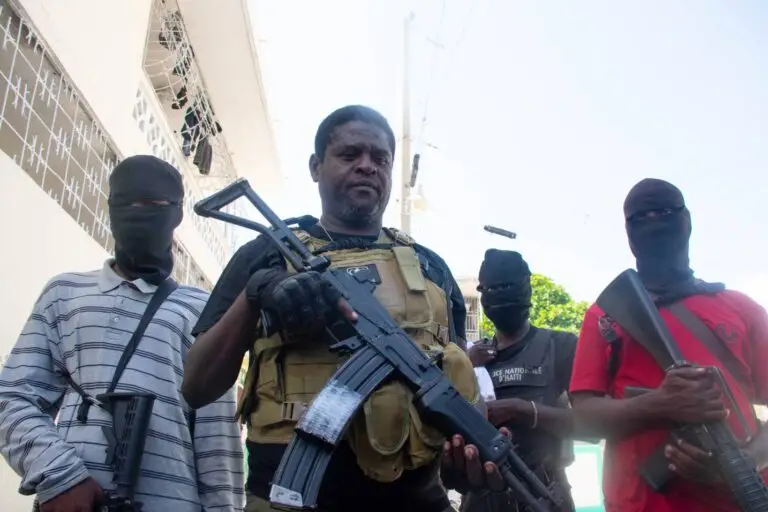PORT-AU-PRINCE, Haiti — In a surprising shift in tone, Jimmy “Barbecue” Chérizier, the ex-police officer turned gang leader who has dominated headlines for years, has announced his willingness to engage in dialogue with U.S. federal authorities—on his terms.
Chérizier, head of the armed coalition Viv Ansanm, has been at the center of Haiti’s unraveling security crisis. Accused of orchestrating kidnappings, murders, and violent turf wars across Port-au-Prince, he’s been labeled a “foreign terrorist” by U.S. officials and is currently the subject of a US$5 million bounty.
Now, he’s talking back.
In a video message recorded in English, Chérizier directly addressed the FBI. Calm but defiant, he declared his openness to “collaborate” with the agency, but not without setting the record straight on what he calls a campaign of lies—particularly surrounding the arrest of Bazile “Fredo” Richardson, a Haitian-American man linked to Chérizier’s operations.
“If the FBI wants me, I’m here,” Chérizier said. “But Fredo is innocent. He never sent money, he never financed anything. Stop the lies and we can talk.”
Richardson, a naturalized U.S. citizen with Haitian roots, was arrested earlier this year in Texas. Prosecutors allege he solicited donations from diaspora communities, funneling funds back to Haiti to fuel gang violence and procure weapons. Chérizier, in contrast, asserts Richardson’s involvement is fiction.
According to U.S. justice officials, both Richardson and Chérizier were instrumental in financing a criminal machine that has destabilized the country. The Department of Justice connects the pair to illicit transfers, and further implicates Chérizier in the 2018 La Saline massacre—an event that left 71 dead, hundreds displaced, and women subjected to unspeakable acts of violence.
Still, Chérizier seems to be playing a new card. His message—strategic, deliberate, and broadcasted in English—appears tailored for U.S. consumption. Whether it signals an opening for negotiation, a calculated attempt to control the narrative, or a trap cloaked in diplomacy remains uncertain.
What’s clear is this: in a country gripped by disorder and outside interference, Jimmy “Barbecue” Chérizier isn’t laying down arms—he’s raising his voice.






